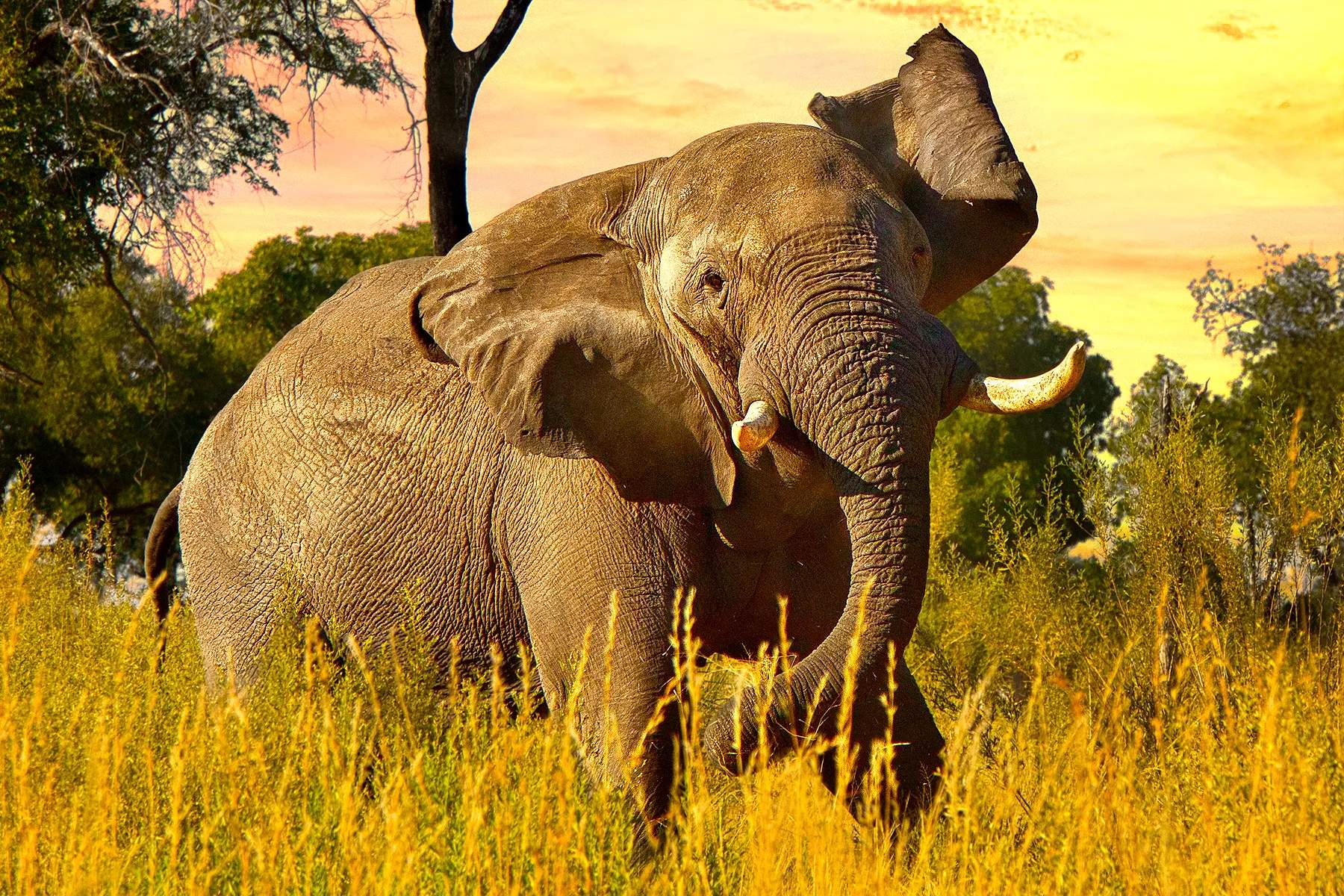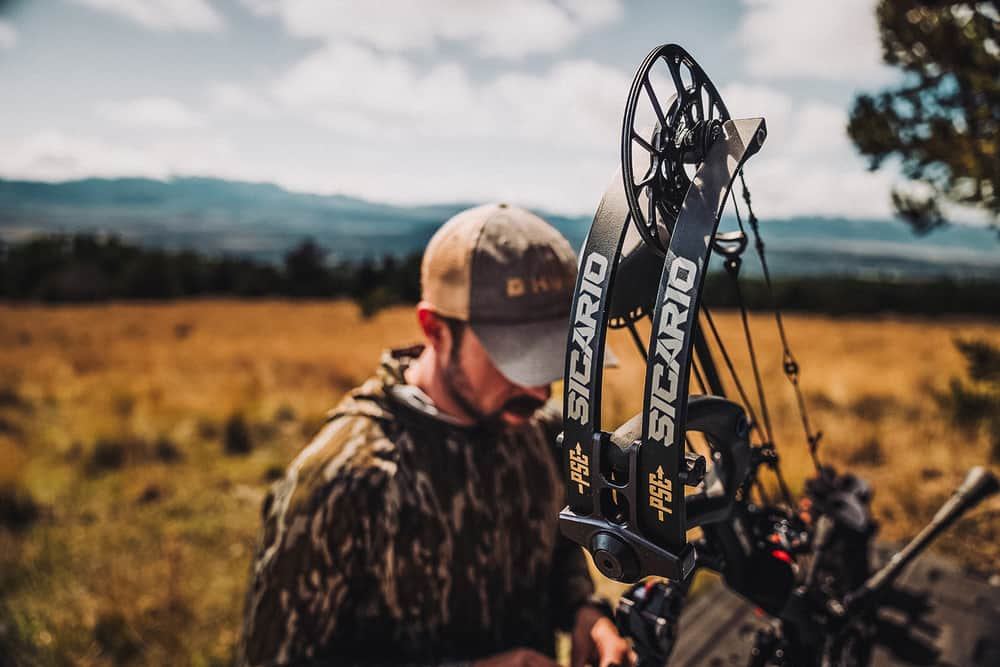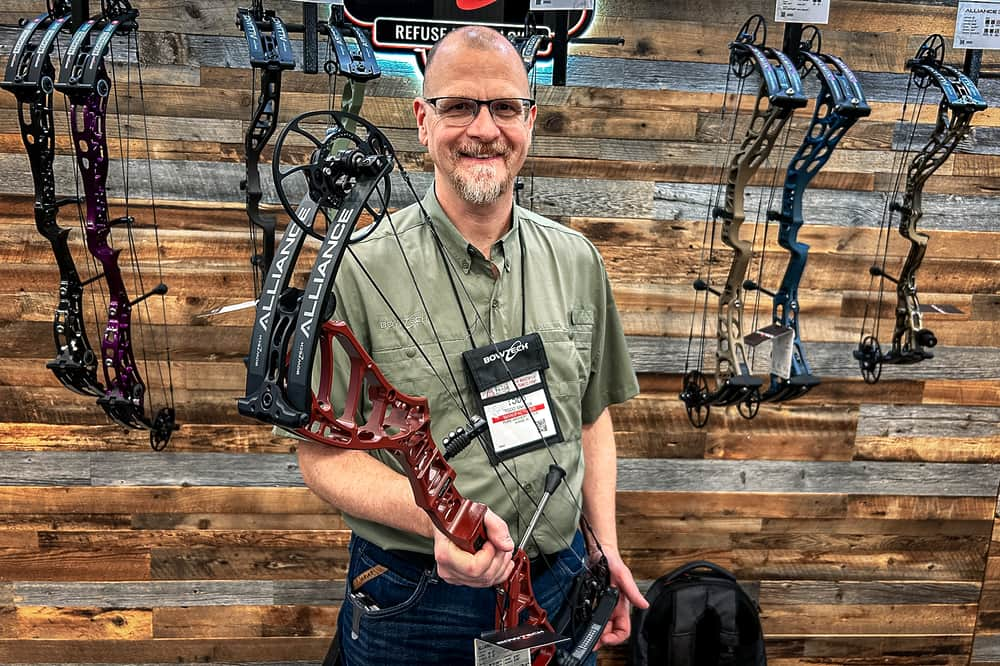In Botswana’s wild northern reaches, where dust devils dance across acacia-dotted plains and elephants move like ancient shadows through the bush, a battle is unfolding—not between species, but between ideologies. A Fine Balance, an original documentary by Blood Origins, sets out to explore the truth behind one of Africa’s most polarizing conservation tools: elephant hunting.
This is no shock-doc or political grandstand. Rather, it’s a grounded, human-focused examination of what happens when policy meets the realities of rural life. Through the lens of Botswana—a country home to the largest elephant population on Earth—the film dives deep into the consequences, promises, and paradoxes of a 2014 hunting ban and its 2019 repeal. At its core lies a central question. Can hunting and conservation coexist?
A Nation at a Crossroads
Botswana has long been held up as a model for African conservation. In 2014, its government, riding a wave of international goodwill and strong anti-hunting sentiment, enacted a nationwide ban on elephant hunting. The message was clear: tourism, particularly photographic safaris, would replace big game revenue, and elephants would be protected for good.
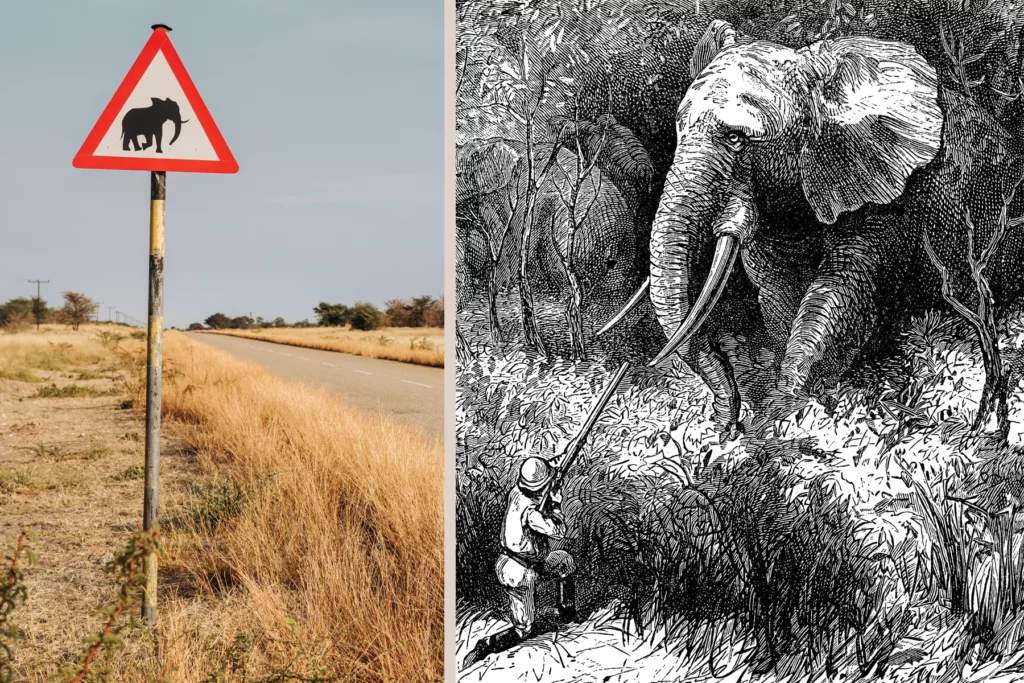
But policies made in capital cities don’t always land gently in rural villages. In places like Sankuyu, NG34, and Mababe, the ban didn’t bring prosperity—it brought hardship. Jobs vanished. Trust funds that once distributed revenue from controlled hunts ran dry. Promised photographic tourism ventures, meant to replace income from hunting, largely failed to materialize in remote concessions. For many, the problem wasn’t just economic—it was existential.
As the documentary shows, the elephant is revered and feared in these hinterlands. It feeds families when hunted, but can also trample fields, raid grain stores, destroy water pumps, and kill livestock. Most tragically, it kills people. “The farmer is never more than 400 meters from an elephant,” one villager remarks, underscoring the daily tension that defines rural life in the Okavango Delta. These aren’t metaphorical conflicts. They’re happening in backyards, at waterholes, on roads shared with cattle and schoolchildren.
On the Ground in NG13
To understand the nuance behind the debate, the filmmakers journey into NG13—a remote, undeveloped concession that embodies the central dilemma of Botswana’s conservation strategy. It’s vast, sparsely populated, and virtually untouched by photographic tourism. The reasons are clear: the terrain is difficult, the animals elusive, and the infrastructure nearly nonexistent.
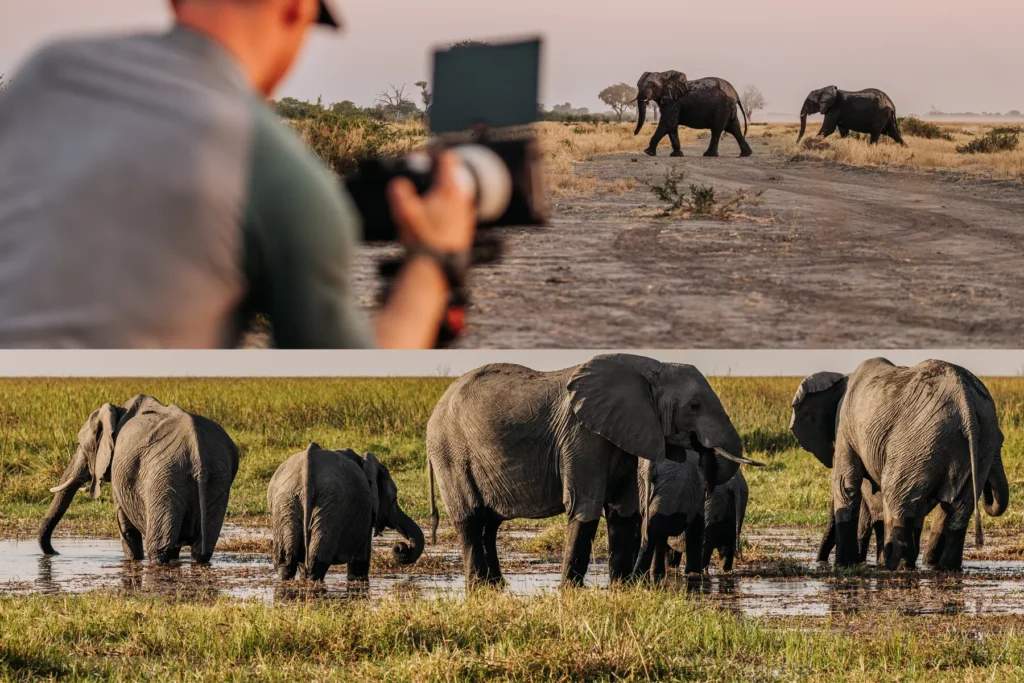
As the documentary notes, in places like NG13, a safari vehicle may go 45 minutes before spotting a single giraffe. Tourists seeking quick, Instagram-worthy game encounters simply don’t come here. But hunters do. And their presence brings employment, protein, and cash flow. During the hunting ban, no investors stepped forward to develop this land for photographic safaris. When the ban was lifted in 2019, money returned—slowly but surely.
A Tale of Two Promises
The documentary doesn't argue that hunting is perfect. It doesn’t romanticize the kill. The footage of a hunted tusker—around 45 years old, near the end of his natural life—is treated with solemnity. But what follows is telling: a cascade of benefits, from meat distributed to families to local workers paid to process the carcass, to revenue filtering back into community projects. For villagers in NG41 and CT5, this is a matter of survival.
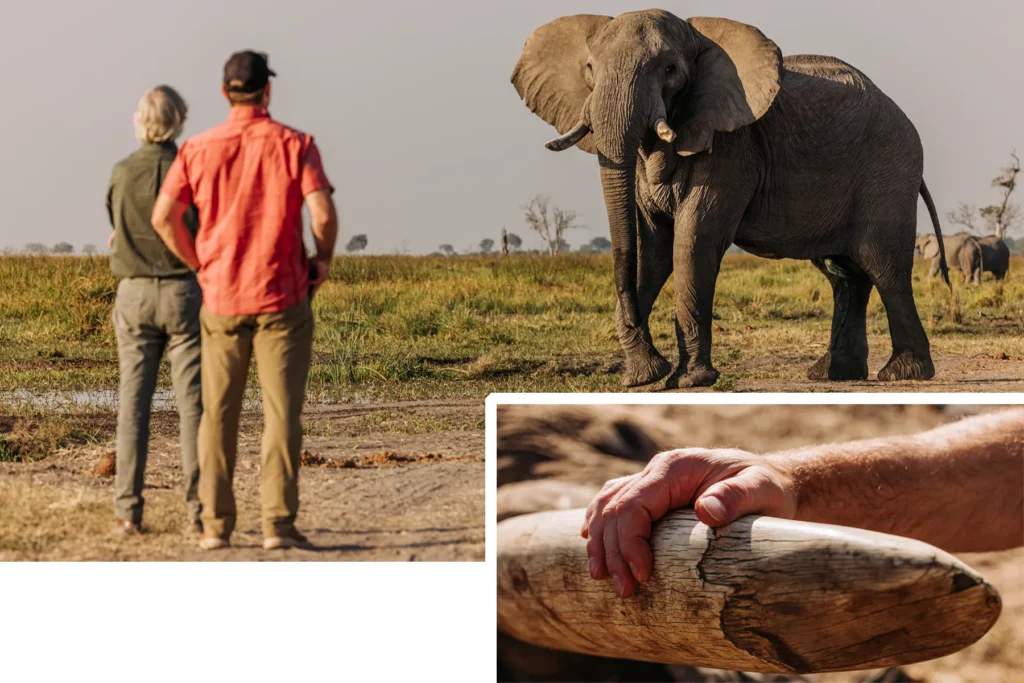
By contrast, areas designated for photography-only tourism—like the land surrounding the famed Okavango Delta—are lush and game-rich. Here, tourism thrives. But even in these regions, the model is not universally applicable. The film highlights a crucial truth: not all land is created equal. In zones where tourism infrastructure can’t take root, hunting may be the only viable conservation engine.
And that is where Botswana’s “fine balance” must be struck. Selective hunting in backcountry areas, with high-value photographic concessions buffering protected zones, once formed the backbone of Botswana’s wildlife management strategy. It worked—until it was dismantled.
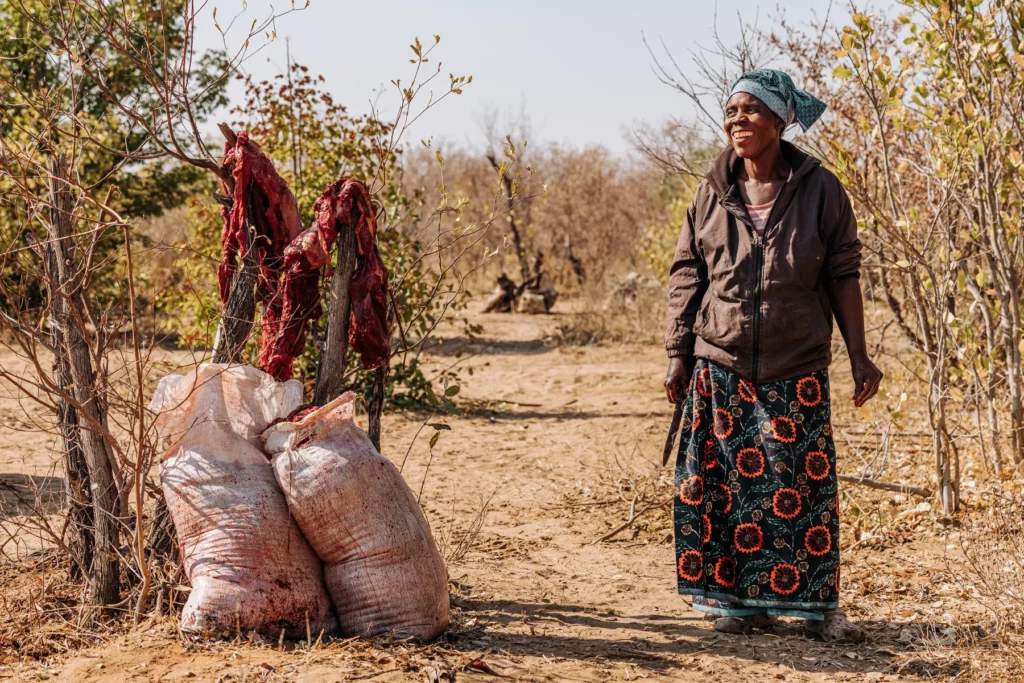
Politics & Perception
In recent months, the debate over hunting has again taken center stage. The country’s Minister of Environment has publicly defended hunting as a critical component of conservation and rural development. His remarks have sparked global reactions, especially from Western audiences where elephants are seen less as resources and more as sacred symbols.
But what A Fine Balance succeeds in showing is that context matters. In many Botswana villages, elephant meat is a primary source of protein. Hunting revenue supports not only individuals, but entire infrastructures—schools, sanitation systems, and wildlife monitoring programs. Trusts like Nata’s CT5, once hamstrung by the ban, now fund ecotourism projects through hunting revenues. Campsites are being built. Bird sanctuaries are maintained. Local economies are rebounding.
It’s a complex story, one that doesn’t fit neatly into Western conservation narratives. The film doesn’t shy away from discomfort. It presents the reality that conservation, in practice, must often navigate the messy terrain between ideals and needs.
A Human Story
What makes A Fine Balance so powerful is its unflinching focus on the human experience. Interviews with villagers, conservationists, and hunters create a tapestry of voices often left out of the conversation. We hear joy at the arrival of meat. Frustration at policy changes. Grief for lost lives. Pride in traditional knowledge.
The film’s final message is not prescriptive. It doesn’t claim that hunting is the only answer. Instead, it asks, “What happens to the people when you eliminate elephant hunting?”
Toward a Balanced Future
As Botswana charts its future, it must confront a hard truth. Conservation must work for both animals and people. In zones where elephants are neighbors, policies must be rooted in reality, not rhetoric.
The real success story doesn’t come from choosing between hunting and ecotourism, but from recognizing that both, when thoughtfully applied, can coexist. This issue goes beyond conservation, it’s cultural, economic, and deeply human.
And perhaps that’s the documentary’s paramount achievement: reframing a polarizing debate through the lens of compassion, clarity, and complexity. Because in Botswana, as in many parts of the wild world, balance is a necessity.
